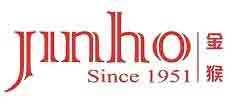It looked like a "second spring" for Hong Kong's high-fashion avenue, which had been teetering on the brink as months of social unrest and the pandemic kept deep-pocketed fashion aficionados away.
In a scene reminiscent of its heyday, the Chanel store on Canton Road in Tsim Sha Tsui drew an unusually large crowd of 100 people one evening in mid-May.
"I rushed to the store as soon as I was off the clock," said public relations executive Stella Lau, determined not to miss the boat after talk on social media platforms suggested that the high-end French house was about to raise prices on some of its brands. She had set her sights on a handbag before the price hikes.
Chanel said on May 13 it was upping prices globally on its iconic handbags and leather items from 5 to 17 percent. Two days later, prices rose in Hong Kong, following increases in Europe.
The fashion house's Medium Classic Flap Bag, which went for HK$42,300 ($5,460) in late November, had a new price tag of HK$48,600 on its official website - an increase of nearly 15 percent.
Chanel's luxury-brand peers also joined in the hike. Louis Vuitton, the biggest revenue driver for industry powerhouse LVMH, had raised prices of its products twice within two months, on March 4 and May 5. Celine, another French luxury house, said it had raised prices of leather goods up to 15 percent since May 28, while Italian luxury label Gucci had hiked its prices on June 1.
Chanel gave a twofold explanation for the price adjustments - the coronavirus had pushed up the cost of raw materials, and it was necessary to avoid excessive price differentials between countries and regions.
But industry analysts expressed doubts that the price hikes had anything to do with costs. "Prices of luxury brands do go up every year. They have to keep the prices of their products on a steady uptrend," said Dai Xianchi, associate professor at the Department of Marketing of the Chinese University of Hong Kong.
He called it a normal operation for fashion labels to use consumers' price expectations to manipulate their desire to purchase. Most consumers roughly knew how much they would have to pay for the products before buying them. They also have so-called psychological gains when they found the prices they're paying now would be well below those in the days ahead.
By the same token, price cuts would not lead to a run on luxury products, as the lower prices would lead customers to expect them to continue to drop in the future, Dai said. He added that consumer psychology behind luxury products is completely different from other categories of retail goods.
"I don't think it's a strategy to attract consumers and boost sales, as the sales growth it brings during the period before price hikes is fairly small and cannot lift their full-year results," said Gao Ming, senior vice-president and managing director of luxury practice for Greater China at Ruder Finn, a global communication consultancy.
The luxury fashion business has been buffeted by the pandemic amid lockdowns, a freeze on international travel and a worldwide economic recession.
LVMH saw a 17 percent fall in sales in the first quarter of this year compared with a year ago, in line with forecast of a 10 to 20 percent drop. Britain's Burberry's comparable sales declined 27 percent in the first three months of the year, with about 60 percent of its global retail stores shuttered at the end of March.
Bain & Company - one of the elite "Big Three" US management consultancies - expects global luxury sales to retreat by 20 to 35 percent this year. It sees the adverse impact going into next year.
A barometer of sales
However, some luxury brands are upbeat about business on the Chinese mainland, with revenues bouncing back. Louis Vuitton said its sales growth on the mainland stood at around 50 percent in early April. Mainlaind shoppers have been the gauge for the sales performance of luxury brands, accounting for 11 percent of global luxury spending in 2019.
According to a survey by Ruder Finn conducted late last year, close to 70 percent of mainland consumers' spending on luxury goods at the time were made overseas, clinging to their belief in higher quality, while Hong Kong consumers' spending overseas took up 56 percent, taking advantage of lower prices.
Jenny Hu, who works in the public sector, said she managed to buy a pair of leather shoes for 5,900 yuan ($840) in Guangzhou just before the price hike last month.
"The saleslady at the store explained that all their factories in Italy had suspended operations, and she couldn't tell whether prices would go up. I believe what she said, which triggered my desire to spend to a certain extent," Hu said.
She had thought of making a purchase through a daigou - an overseas shopper who buys foreign products for mainland customers. But she gave up the idea after realizing it would be quite troublesome, considering that many stores in the region were still closed, and transportation time could be longer.
Since mainland consumers can no longer go overseas for luxury items amid global travel curbs, the foot traffic in mainland shops is likely to increase. Burberry CEO Marco Gobbetti said in May the company's sales growth on the mainland had surpassed last year's levels, benefiting from the accumulated spending pool of consumers who used to shop overseas.
"We've seen a strong performance in our online business in China and South Korea, growing by double digits over last year's, and a significant traction in handbags and small leather goods across a range of styles. The sales trends in both markets have continued to improve, with China in particular seeing double-digit growth in recent weeks," Gobbetti said.
To better engage Chinese customers, many luxury labels have launched online campaigns tailored for the Chinese market, such as livestreaming programs.
Gobbetti said he expects the pandemic to trigger a direct-to-consumer shift. Thus, Burberry will continue to focus on digital sales in the months ahead. It will open a store in Shenzhen later this year, powered by Tencent technology, blending social media and retail to create digital and physical spaces.
Luxury brands downsize
Ruder Finn's survey revealed that both mainland and Hong Kong consumers are feeling more comfortable shopping online, compared with a year ago. Hong Kong consumers prefer buying through official websites, while e-commerce platforms cater mainly to online purchases of luxury goods on the mainland.
"For the time being, e-commerce can be just one of the distribution channels for the luxury fashion industry, playing a complementary role," said Ruder Finn's Gao. Personalized and value-added customer experience, he said, is always important for the sector, and no luxury brand can rely solely on online sales.
In Hong Kong - one of mainland consumers' favorite luxury shopping destinations - luxury brands like Prada, Valentino and Tiffany are downsizing their presence in the city because of high commercial rents, while others are re-evaluating their operations.
Han Zhi, director of retail at Swire Properties, said stores of Dior and Loewe are being renovated and will reopen with more space at Pacific Place in Admiralty. He said Swire - one of Hong Kong's biggest landlords - continues to see stable demand at Pacific Place from a diverse range of local and international tenants.





